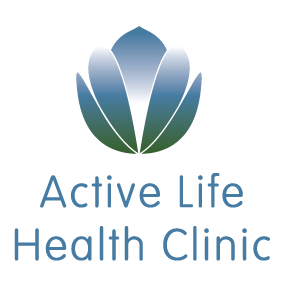 “I don’t think I was asleep, but I don’t feel like I was ‘here’,” he said when I came back into the treatment room. This is a common theme for people getting acupuncture—though they do often sleep too. So, “where” was he? In a meditative zone.
“I don’t think I was asleep, but I don’t feel like I was ‘here’,” he said when I came back into the treatment room. This is a common theme for people getting acupuncture—though they do often sleep too. So, “where” was he? In a meditative zone.
That’s right. You can cheat your way into meditation with acupuncture! In fact, studies using a functional magnetic resonance imaging (fMRI) machine to measure the activity level of different areas of the brain during acupuncture have found that “acupuncture needle manipulation modulates the activity of the limbic system and subcortical structures.” What does that mean, you ask?
These areas contain structures that help you experience and respond to emotions and potential threats, attention, memory, and more. One of these areas—the amygdala—triggers feelings of fear, anxiety, and stress. Studies on meditation show a decrease in brain cell volume in this structure after just a couple of months of regular meditation. A common description by people after both acupuncture and meditation is that they feel calmer and more relaxed.
I know many of you say that you can’t meditate. I get it. It can be difficult. But meditation, like everything, takes practice. Here are some tips on meditation.
Start Small
I made a commitment to just one minute daily. That’s a stupid small number, but I chose it because it would be ridiculous for me to say I don’t have time. Sixty seconds is simple. I always choose more than one minute, but I know that I can still be successful with just that tiny bit of time.
Find Mindfulness in the Mundane
One of my patients gave me a copy of an article about practicing mindfulness while peeling a mandarin orange. This small task takes two hands and involves the sensations of sight, touch, smell, and eventually—once you’ve unpeeled it—taste. Even the citrus smell itself is mood lifting aromatherapy.
You can practice mindfulness while brushing your teeth, walking your dog, or even just waiting for the bus. It’s true–you can put down your phone and just be.
Tune Out to Tune In
Have you ever tried a float? No, not a root beer float. What I mean is the now popular sensory deprivation float tanks. Because it’s completely dark, you wear earplugs, and you are floating in body temperature water, you get to experience nothing. When I’ve done it, I’ve sometimes felt my mind firing up, trying to make up for the lack of other sensory stimulus. But eventually, my mind got bored and I “disappeared.” One time I even felt very clearly like I was floating in space, tiny in a vast void. It was liberating.
Practice Daily
The key to the benefits of meditation is regular practice. Once a week for 20 minutes is not as good as 5 minutes every day. Consistency, habits, routines–that’s what prevails.
Find Meditation with Acupuncture
Another of my patients pays specific attention to how she feels when she gets acupuncture. She focuses on the sensations, pays mind to where and how she feels relaxed, and then makes sure to store that in her body memory so she can recall it later. She told me that she can even “experience acupuncture” when she’s sitting on a busy bus.
Our minds are designed to more easily recall the things we pay attention to. Perhaps you are like me, thinking you don’t have a good memory for names. But what happens when you are introduced? When your new friend told you their name, were you really listening or were you thinking about what you were going to respond? Problems with memory are often actually problems of attention.
So, the next time you get acupuncture, pay attention to how it feels to relax when I leave the room. Pay attention to that feeling of calm as you get off the table. Then practice recalling those sensations later on. ‘Cause, guess what?
Acupuncture can help you cheat your way into meditation.

Recent Comments